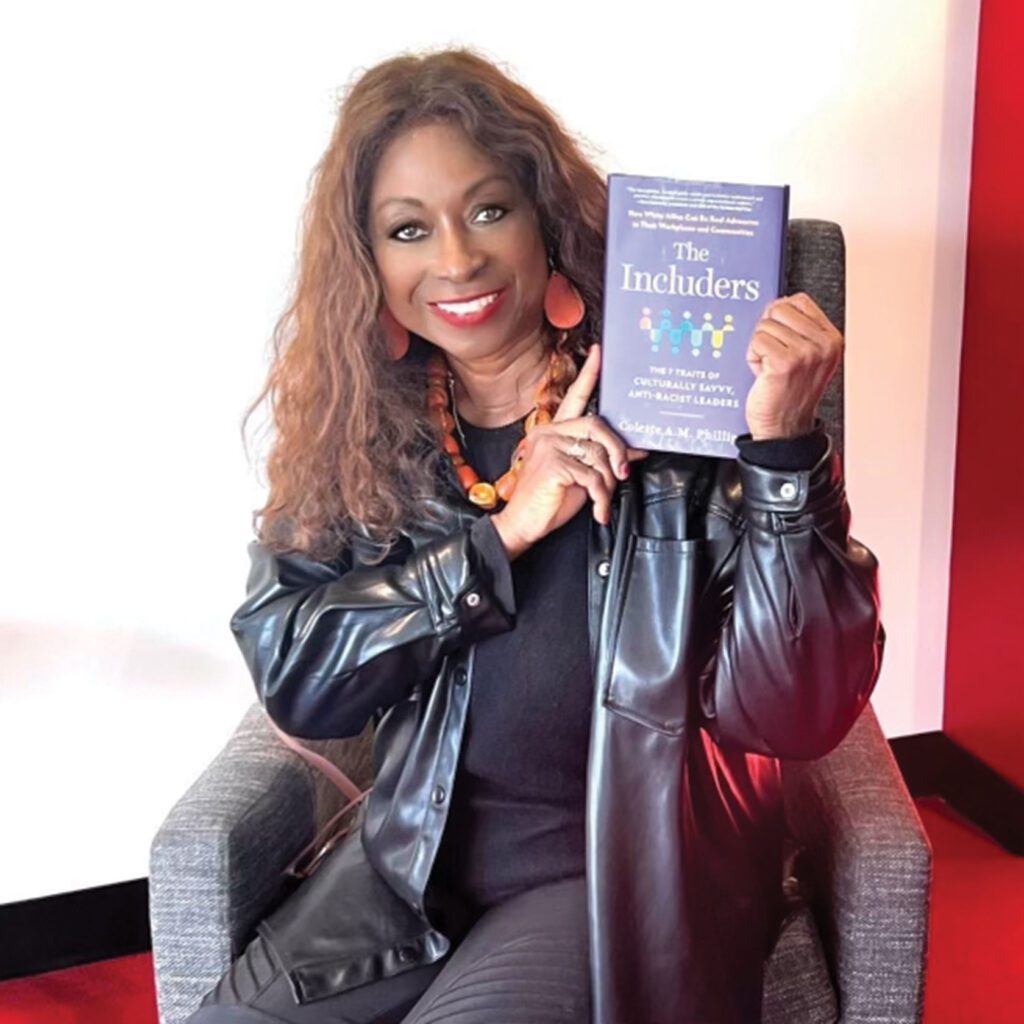
Colette Phillips envisions a model for diversity, equity and inclusion that does not leave out white men.
“If we’re talking about inclusion, no one should be excluded from the conversation,” said Phillips.
The business mogul has had an illustrious career as a public relations and marketing professional, including founding her own firm, Colette Phillips Communications. Her latest endeavor is a book titled “The Includers: The 7 Traits of Culturally Savvy, Anti-Racist Leaders,” a recently published handbook that breaks down anti-racist C-suite allyship from a racial equity lens.
Throughout her time as a PR expert, Phillips came to see that DEI initiatives were missing the mark.
“As I built my PR company on the premise of helping companies understand and actualize the competitive advantage of inclusion,” she writes in the book, “I realized something: You can’t have inclusion if you exclude the very people who have the power to make systemic changes at the corporate, societal and philanthropic level.”
People get alarmed when she talks about getting white men involved, she said, “but we can’t change America by ourselves.” Instead, Phillips wants to “bring a new, fresh approach and lens to DEI,” one that includes white men, who she said hold the power.
Many of the most well-known and influential corporations in the country are run by white men. In 2023, nearly three-fourths of CEOs of the top 50 Fortune 500 companies were white men, according to a report by Qualtrics. Ending systemic racism, Phillips writes, cannot be achieved without white men.
In her book, she highlights white male allies she admires. She also emphasizes the need for DEI initiatives to bring white men, the so-called “includers,” to the table, not to save Black people or people of color, but to stand in the “breach with us, to lean in, to listen, to learn, and then to lead from behind.”
She decided to write the anti-exclusion book in 2020 after George Floyd’s murder when DEI was at the center of conversations in the workplace. “The Includers” was published this year, when calls to dismantle DEI are at their loudest.
Phillips has long been passionate about DEI. But growing up in Antigua, a majority-Black country, she never viewed herself as different. Everyone looked like her, which gave her the confidence and self-assurance to believe she could do anything.
But when she moved to Boston to study communications at Emerson College in the 1970s, she got a “rude awakening” that changed her view on race, especially the experiences of African Americans. Living through some of the most turbulent years in Boston’s history and learning about race relations in the city shaped her as a professional.
While at Emerson, Phillips partook in an internship that exposed her to the power of PR to “change minds and opinions.” Her newly found passion led her down an entrepreneurial path, inspired in large part by her parents, to whom she dedicated her new book.
But “The Includers” is not the only thing keeping Phillips busy. In addition to running an award-winning firm, she serves on the board of directors of various organizations. And, in 2008, Phillips founded Get Konnected, a cross-cultural networking event series for business professionals, aiming to make Boston more inclusive.
“I was tired of going to events in Boston, and not seeing a lot of people who look like me at those events, in those rooms,” she said. “And I knew and understood the power of networking and decided that we wanted to create a networking organization that would give people of all backgrounds the opportunity to connect with each other.”
At a recent, well-attended Get Konnected event titled “Stories of Solidarity,” Phillips highlighted the organization’s mission of bringing together people from all cultural backgrounds.
The networking event featured speeches by Tanisha M. Sullivan, Boston NAACP president, and Yvonne Hao, Massachusetts secretary of economic development, and brought together five organizations each from the Black and Asian communities. Get Konnected is just one of the many avenues Phillips uses to champion DEI.
She said the idea of leaving a legacy is what drives her.
“What you do for yourself dies with you. What you do for others and the world becomes immortal,” she said. “We all came into this world to do something with purpose. I live my life with purpose, with passion, with compassion, with a commitment to making a difference.”






